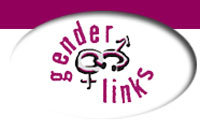Zimbabwe: Watered down media achievements

The latest is News Day, the new private daily newspaper that descended on the streets of Zimbabwe on 4 June 2010. Thanks to the Global Political Agreement (GPA), this could position these newspapers to provide alternative views from those bombarding the nation by state media. More so, pluralistic media could not have come at a better time than now, as 2011 could witness a referendum and election.
This appears to be a stepping stone to the liberalisation of the public sphere that should live to see a secure and existent plurality.
Neither holistic or credible
However, as good as it may seem, this current reform is not in itself holistic and credible. These newspapers serve a particular social class who are mostly the educated urban population. It fails to cater for a differentiated audience, particularly the rural, uneducated and marginalised, and so may not reflect diverse views from everywhere.
Such a situation does not exist as an isolated entity but is reflective of the African problem in accessing information. Again, this could be seen as a strategic political move that can only render these reforms superficial. A closer look at changes in this sector shows a huge gap between the changes in print as compared to broadcasting. Radio and television have been waiting for many years and there seems to be no light at the end of the tunnel concerning any concessions with such powerful propaganda tools.
Radio strategically neglected
With a look at radio, the government could have licensed community radios so as to reach a broader population, especially those in marginalised communities. This could mean people rarely heard can participate and increase their access to the media, but this seems to be neglected strategically.
By using the same broadcast styles and statements as used on all Zimbabwe Broadcasting Corporation (ZBC) radio services and putting Zanu-PF in good light, these propaganda messages may affect elections, especially in the rural areas where Zanu PF gain most votes. So, what these people consume from the media is still kept in check and no counter argument or alternative for democratic communication is offered.
Inherited restrictive media
It seems from the time of independence Zimbabwe inherited its restrictive media from the Rhodesian regime. Governments indeed changed but the ideology behind the laws that still benefit the government remained intact. These draconian laws are evident of the government's fear, especially of criticism of the way they are handling situations in the country. An answer to why they might have allowed such laws to survive is that the government might still be using the laws existent in the country to consolidate its hegemonic powers.
Arguably, the Zimbabwean government still uses the concept of exclusion in its media operations. Just like the Rhodesian Broadcasting Corporation (RBC) used to cater for a small group of white people and alienate the rest of the people in the country, ZTV seems to want to follow the same route. One could think that the ZTV2 launch of a syndicated version of ETV could provide an alternative for the nation at large. However, this only serves the capital city Harare just like Joy TV had before it ceased its operations.
Violating role of public broadcaster
The media should be a platform for all citizens to participate and receive information and news. So, how can only people in Harare and those in an 80-metre radius of the city be enabled to have free access to both the two ZTV channels when people in other areas like Nkayi can not even access ZTV alone and it is supposed to be a public broadcaster? ZBC is violating all the tenets of the normative role of public broadcasting.
The fact that ZBC still gathers, edits and distributes the news hinders the ability of ETV to be an alternative voice in Zimbabwe. This means ZBC still has a monopoly over the dissemination of information. Media activists have argued foreign content fills the station, which may mean that the station's mandate to provide local content (since it is a public broadcaster is limited and in turn democratic development lessened.
Pluralism without reform
The lack of legal reform waters down achievements towards pluralism. They are allowing them to exist but restricting them as draconian media laws like AIPPA, Public Order and Security Act (POSA) and Broadcasting Services Act (BSA) are still intact. So of what use is pluralism without legal reform?
With the GPA, not being able to address the fundamental economic problems, will these newspapers be able to sustain themselves in an environment where the average Zimbabwean earns US$200/month. Again, considering that newspapers survive on advertisers and Zimbabwe seems to have a small market of them this will give a blow to these newspapers existence as they compete for advertisers with the already existing newspapers.
Human rights
Diversity and pluralism must thrive. The media should be a platform for all to speak and the public allowed to get information from a vast amount of players in print, television and radio. Moreover, there should be an investor friendly environment to boost the growth of the industry.
Maybe, and only maybe, will Zimbabwe cease to be called a human rights abusive country. The lesson to learn is that the right to information and communication is an imperative human right and it should be recognised not only in a manner that suits certain people but everybody, especially after 30 years of freedom.
Source: Gender Links
This article is part of the Gender Links (GL) Opinion and Commentary Service that offers fresh views on everyday news. Gender Links (www.genderlinks.org.za) is a southern African organisation committed to promoting gender equality in and through the media. For more, email az.gro.sknilredneg@rotide and follow @GenderLinks on Twitter.
Go to: http://www.genderlinks.org.za






















